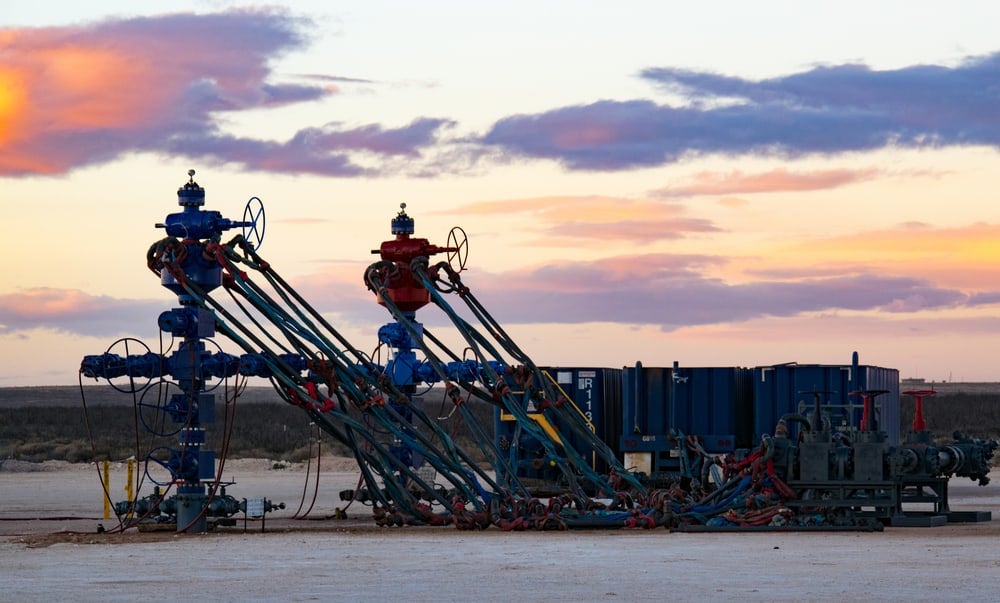
Daseke, Inc. (NASDAQ: DSKE), a major consolidator in open deck and specialized heavy haul trucking, has acquired Aveda Transportation and Energy Services, a Canadian asset-based provider of oilfield services covering Alberta, North Dakota, Wyoming, Pennsylvania, West Virginia, Oklahoma, and Texas.
Aveda is one of the largest oil rig moving companies in North America, and with this acquisition Daseke doubles-down on oil. Daseke is already heavily exposed to the oil and gas industry because of its focus on flatbed trucking; this move enlarges Daseke’s long position on American oil and gas production.
“I am truly excited to have Aveda join the Daseke family,” said Don Daseke, Chairman and CEO of Daseke, in a statement. “Aveda is a great company with quality people, a specialized value-additive business and a blue-chip customer base. This merger is a strong fit for our company and shareholders as Aveda has demonstrated the ability to outpace their market’s growth rate. We expect joining Daseke will provide Aveda the necessary backing and capital to fuel their continued strong performance.”
Daseke acquired Aveda for C$128.6M; $43M in cash or equivalent of DSKE stock and $58.5M in debt. Cowen’s analysts wrote that “The purchase comes at an 80% premium to Friday’s C$0.53 closing price. DSKE management noted in the press release that Aveda’s equipment and machinery were valued at C$114MM six months ago, implying the company was acquired for just a 10% premium to the value of its hard assets.”
Just a week ago, Bloomberg reported that Saudi Arabia was seeking a crude oil price of $80 per barrel in anticipation of state-owned oil company Aramco’s anticipated IPO in 2019. There are other reasons to be bullish on oilfield services companies like Aveda that have a solid record of organic growth: we reported in February that the Energy Information Agency projected 60% Permian Basin oil production growth by 2030 and expected the United States to be a net oil and gas exporter by 2022.
In a Cowen equities research note published Tuesday, Jason Seidl, Matt Elkott, and Matthew Frankel wrote that oilfield services will become about 10% of Daseke’s total revenue and a top 4 vertical for the company. Meanwhile, the Baker Hughes Rig Count, last updated on April 13, posted 1,008 active rigs in North America, up 5 from the previous week.
Last month, FreightWaves reported on high flatbed spot prices in shale regions; we’ve seen that available truckload capacity has become a constraint on future shale oil production growth, but consolidation in the segment should increase efficiency.
Rystad Energy’s April 2018 newsletter cited some telling quotes from fracking industry participants regarding trucking and road capacity. One energy and petroleum planning lead said, “You’re going to see similar problems as to what happened in the Eagle Ford years back; roads get chewed up and no one wants to have them shut down for repairs.” A services company VP said “It’s not just the quality of roads anymore, it’s the NUMBER of roads. I just don’t think there are enough roads to service this kind of demand without traffic jams of semis all over the Permian.”
Still, Cowen’s energy and petroleum group thinks that 2018 will be a strong year for drilling and completion capex, and calls for 18% YOY growth over 2017 (which was up 71% over 2016). 2019 is expected to grow 16%, but Cowen forecasts D&C capex growth to fall to 4% YOY in 2020.
“With an additional 50M tons of frac sand and 2M hydraulic horsepower coming online in 2018, the shale oil production bottleneck will shift even further to truckload capacity and truck drivers. We’ve had conversations with industry participants where $150,000 annual salaries for oilfield truck drivers were tossed around. These factors are a long term support for trucking prices over at least the next year,” said Sam Tibbs, FreightWaves’ director of data science.










